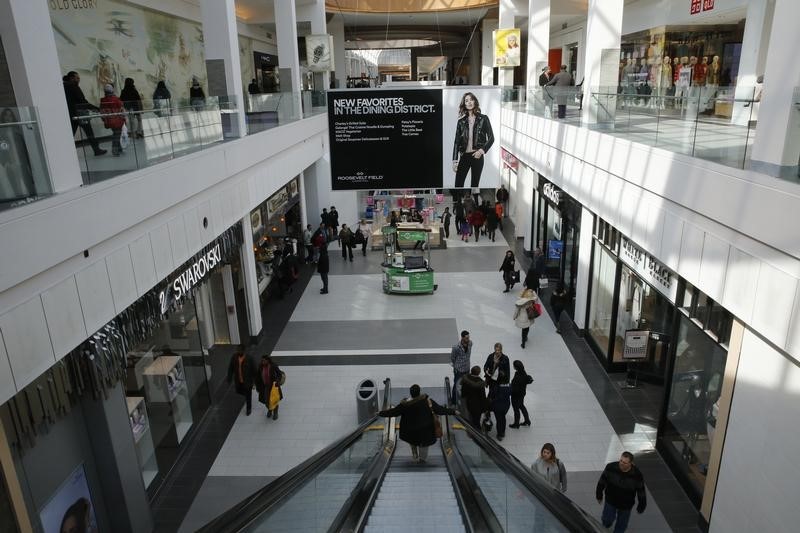Gold prices set for weekly gains on dovish Fed outlook; silver near record high
By Geoffrey Smith
Investing.com -- Consumer sentiment across the U.S. improved in the month through early August, but expectations for inflation remained stuck at elevated levels, suggesting that the Federal Reserve's aggressive rate hikes this year haven't yet had their desired effect.
The University of Michigan said on Friday in its monthly survey that expectations for inflation one year from now fell to 5.0% from 5.2% a month earlier, but expectations for inflation over a five-year period edged up to 3.0% from 2.9%.
One of the main reasons advanced by the Fed for its series of rate hikes - the last two of which were each by a chunky 75 basis points - has been to convince Americans that it won't allow the current sharp burst of inflation to last.
Joanne Hsu, director of the survey, said that the decline in the one-year expectation outlook, along with an improvement in the consumer expectations sub-index, followed "extended declines" in energy prices from their peaks in late spring. However, she noted that 48% of respondents still blamed inflation for making their own personal finances worse.
She also noted that "high-income consumers, who generate a disproportionate share of spending, registered large declines in both their current personal finances as well as buying conditions for durables."
The University's main sentiment index, however, improved to its highest level in three months, rising to 55.1 from 51.5 in July. That was above forecasts for a more modest rise to 52.5.
Analysts said the release wasn't clear enough to change the current debate about how big the Fed's next step should be. Kathy Jones, chief fixed-income strategist for Charles Schwab, said via Twitter that the debate is currently "between 50 and 75" basis points, but that a lot of data are due to be released before the central bank's next meeting.
A half-point hike would be in line with the thoughts expressed by San Francisco Fed President Mary Daly, who told Bloomberg on Thursday that she was inclined to raise the fed funds target range by only 50 basis points in September. That would take the top end of the range to 3.00%.
